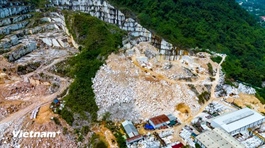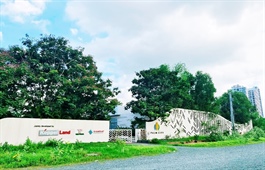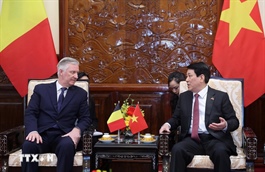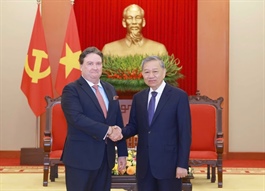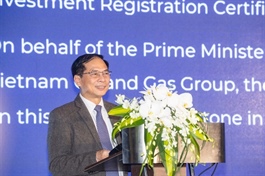Legislative reform simplifies admin for management of atomic energy plans
Legislative reform simplifies admin for management of atomic energy plans
The revised Law on Atomic Energy strengthens government oversight of radiation safety and encourages the use of atomic energy, with the ultimate goal of fostering rapid and sustainable development in the country.
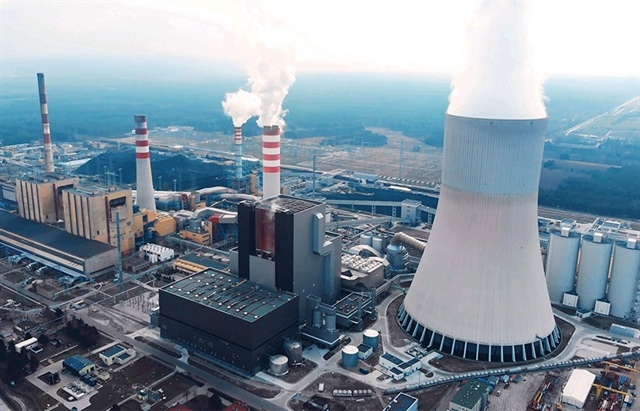
Private participation in energy opens up investment doors, electricity upgrades, and supply chain boosts, Photo: Shutterstock |
It ensures the country’s leadership in the legislative process for the peaceful advancement of atomic energy. By encouraging decentralisation and delegating authority, the law simplifies administrative procedures in the management of atomic energy.
The amended law inherits key provisions from the 2008 law, while addressing previous shortcomings and overlaps. The provisions, however, must be clearly defined, feasible, and yield long-term effects. They should also include forward-looking regulations, establishing a legal framework for radiation and nuclear safety, security, and safeguards as Vietnam develops its nuclear power.
Additionally, it must also comply with international law, incorporating Vietnam’s treaty commitments while ensuring legislative provisions remain under the National Assembly’s jurisdiction.
The draft Law on Atomic Energy consists of 12 chapters and 73 articles. It aligns with several government-approved policies: promoting development of atomic energy applications; ensuring nuclear safety and security; decentralisation in state management; facilitating nuclear inspection activities; managing radioactive waste and spent nuclear fuel; responding to radiation and nuclear incidents; and civil liability for nuclear damage.
The draft law grants the government the authority to define details related to state management of nuclear facilities, including decentralisation, licensing, safety assessment reports, and incident response for radioactive materials. It also addresses information disclosure, documentation, and international cooperation in atomic energy, along with the roles of the Vietnam Atomic Energy Commission and the Vietnam Agency for Radiation and Nuclear Safety.
Furthermore, three articles have been removed to align with existing laws, including those on geology and minerals, civil defence, social insurance, and electricity.
Almost 60 articles have been amended, covering terminology, principles for ensuring nuclear safety and security, development and application of atomic energy and nuclear power plans, incentives for workers in atomic energy, safety assessment reports, radiation exposure control, and more besides.
Amendments have been made to articles concerning the responsibilities of organisations and individuals in ensuring safety and security, the handling and storage of radioactive waste and fuel, worker certificates for those supporting atomic energy applications, management of uncontrolled radioactive materials, safety analysis reports, and other aspects.
The updated provisions now include nuclear safety and security requirements for all stages of nuclear power plants and research reactors. They outline the responsibilities of facilities involved in radioactive mineral activities and address the transport, export, and import of radioactive materials and equipment.
Additionally, the guidelines cover the licensing of radiation-related activities, response protocols for nuclear incidents, and compensation for related damages.
The draft law also introduces 20 new articles on digital transformation in safety management, state management duties, strategies for atomic energy applications; policies to encourage investment and privatisation of atomic energy development, radiation monitoring, and the inspection and handling of violations, among others.
It also defines responsibilities for nuclear facility heads, including plant design, trial operations, safety assessments, waste management, and regulatory compliance.
The revised Atomic Energy Law will abolish 10 administrative procedures, amend 14, and add two new ones. The new procedures cover declaration when planning to transfer or assign radioactive sources to comply with international treaties, and liquidating radioactive sources to facilitate cost reductions for organisations and individuals in complying with legal regulations concerning the storage of radioactive sources.
- 15:03 02/04/2025








